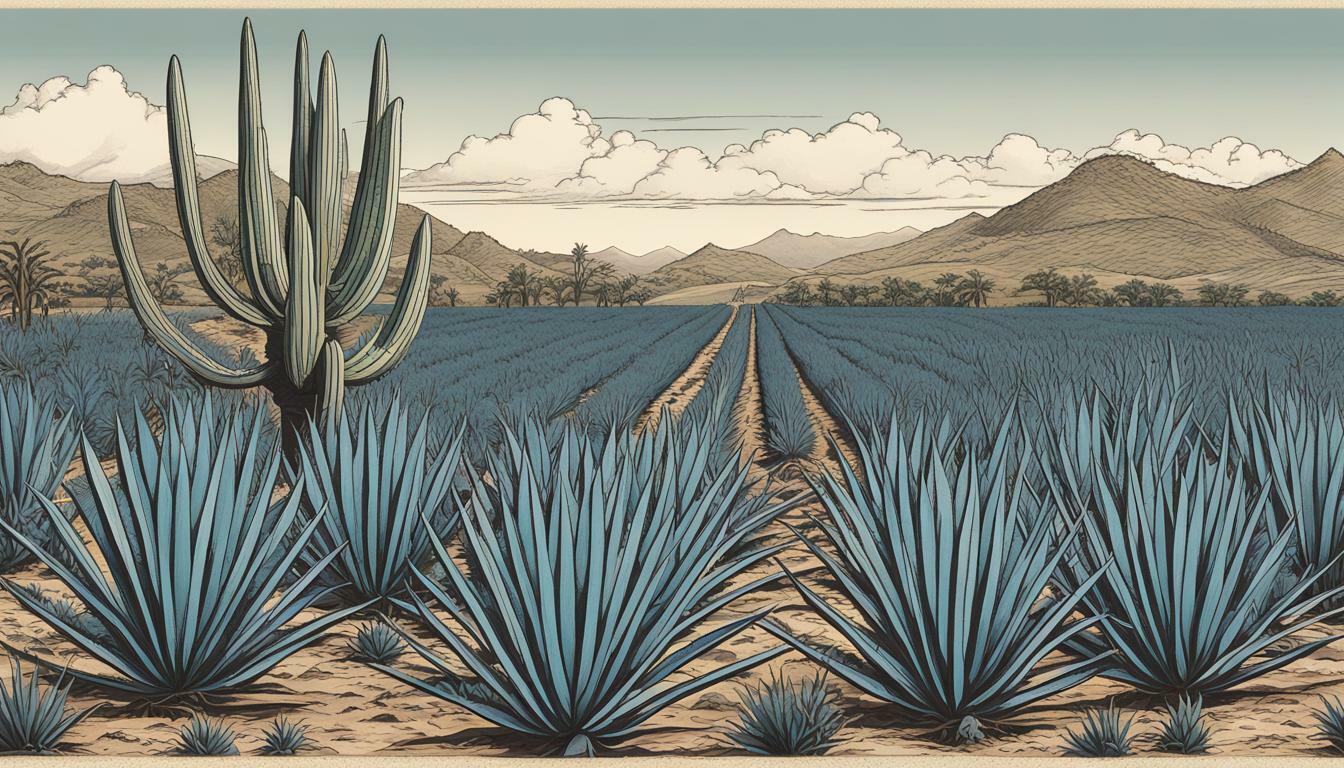For whisky enthusiasts, there’s nothing quite like the experience of sipping on a smooth, flavorful glass of Scotch or Irish whiskey. But what really sets these two distinct styles apart? From their production methods to their taste profiles, Scotch and Irish whiskey each offer a unique experience for discerning drinkers.
In this section, we’ll take a closer look at the key differences between Scotch and Irish whiskey, exploring their origins, distillation processes, and taste profiles. Whether you’re a seasoned whisky connoisseur or a newcomer to the world of aged spirits, you’re sure to learn something new about these fascinating styles.
Key Takeaways:
- Scotch and Irish whiskey are two distinct styles of aged spirits with unique production methods and taste profiles.
- Scotch is produced in Scotland, while Irish whiskey is made in Ireland.
- Their distillation processes and aging techniques differ significantly, influencing the final taste profiles of each style.
- Scotch is known for its robust, smoky flavors, while Irish whiskey is often smoother and more approachable.
Origins of Scotch and Irish Whiskey
Scotch and Irish whiskey are two styles of whisky that have captivated the taste buds of enthusiasts around the world for centuries. The production of both of these iconic spirits is steeped in history and tradition, with each style boasting its own unique identity and flavor profile. Let us take a closer look at the origins and production methods of Scotch and Irish whiskey.
Scotch Whiskey Production
Scotch whiskey production is strictly limited to Scotland by law, and it must be made using only malted barley, water, and yeast. The production of Scotch whiskey involves two distillation processes, resulting in a spirit that is generally smoky and full-bodied. The malted barley is dried over peat fires, which imparts the smoky flavor that Scotch whiskey is famous for.
Irish Whiskey Production
Irish whiskey, on the other hand, can be produced anywhere on the island of Ireland and can be made with a combination of malted and unmalted barley, as well as other grains like wheat or rye. Unlike Scotch whiskey, Irish whiskey is distilled three times, resulting in a smooth and approachable spirit with a generally light and sweet flavor profile.
In summary, while Scotch whiskey must be produced in Scotland using only malted barley, water, and yeast, Irish whiskey can be produced anywhere on the island of Ireland and may consist of a variety of grains, including malted and unmalted barley. Scotch whiskey is typically distilled twice, while Irish whiskey is distilled three times, resulting in distinct flavor profiles for each style.
Distillation Processes of Scotch and Irish Whiskey
One of the primary differences between Scotch and Irish whiskey lies in their respective distillation processes. Both styles are made from similar ingredients, including malted barley, water, and yeast. However, the techniques used to distill the alcohol are distinct and contribute to the unique flavor profiles of each style.
Scotch whisky is typically produced using a double distillation process. This means that the fermented mash is distilled twice in copper pot stills to create a concentrated spirit that is then aged in oak barrels. The first distillation removes impurities and creates a low-strength liquid known as “low wines,” which is then distilled a second time to create a high-strength spirit that is matured in casks for at least three years.
In contrast, Irish whiskey is usually distilled three times in copper pot stills to create a smoother, lighter-bodied spirit. The triple distillation process removes even more impurities and creates a purer alcohol that is then aged in oak casks for a minimum of three years. This process results in a smooth and approachable whiskey that is often preferred by those new to the world of whiskey.
Overall, the distillation process plays a key role in the final taste profile of Scotch and Irish whiskey. While Scotch has a robust and complex flavor with smoky and peaty notes, Irish whiskey is smoother and lighter-bodied with hints of vanilla and fruit. The difference in distillation helps to create these unique taste profiles and is a key factor in choosing between the two styles.
Ingredients Used in Scotch and Irish Whiskey
The ingredients used in Scotch and Irish whiskey play a crucial role in determining their unique taste and character. While both styles of whiskey share some common ingredients, they differ in others, giving each a distinct flavor profile.
Scotch whiskey is made primarily from malted barley, water, and yeast. Other grains, such as wheat or rye, may also be used in smaller quantities. The barley is soaked in water and then spread out to germinate. This process releases enzymes that convert the starches in the barley into fermentable sugars. The germinated barley, or malt, is then dried over a peat fire, which imparts a smoky flavor.
Irish whiskey, on the other hand, is made from a blend of malted and unmalted barley, along with other grains such as corn or wheat. The unmalted barley gives Irish whiskey a unique texture, while the malted barley provides a floral note. The blend of grains used in Irish whiskey also results in a smoother, sweeter flavor compared to Scotch whiskey.
Whiskey Ingredients Comparison Table
| Ingredient | Scotch Whiskey | Irish Whiskey |
|---|---|---|
| Grain | Primarily malted barley, with some wheat or rye | Blend of malted and unmalted barley, with other grains such as corn or wheat |
| Water Source | Peat or mineral-rich water | Spring water |
| Yeast | Various strains, including some unique to specific distilleries | Usually a single strain, selected for its ability to create a smooth, consistent flavor |
Overall, while Scotch and Irish whiskey share some commonalities in terms of ingredients, their differences are what really set them apart. Scotch whiskey is known for its smoky, robust flavor, while Irish whiskey is renowned for its smoothness and sweetness. Whether you prefer the complex, layered taste of a fine Scotch or the easy-drinking nature of Irish whiskey, both styles offer something unique to savor.
Differences in Aging Scotch and Irish Whiskey
The aging process is a critical factor in the creation of both Scotch and Irish whiskey. However, there are some fundamental differences between the two styles of whiskey when it comes to aging.
Scotch whiskey must, by law, be aged for a minimum of three years in oak casks. The type of cask used can greatly impact the final flavor profile of the whiskey. Common types of casks used in Scotch whiskey production include bourbon barrels, sherry casks, and port casks.
In contrast, Irish whiskey is typically aged for a shorter period of time and is not bound by the same legal restrictions as Scotch whiskey. Many Irish whiskeys are aged for around three to five years, although some premium expressions can be aged for longer periods. A variety of different casks may be used to age Irish whiskey, including bourbon, sherry, and rum casks.
The difference in aging requirements and techniques can result in distinct flavor profiles for Scotch and Irish whiskey. Scotch whiskey tends to have a more complex and robust flavor, with notes of smoke, peat, and oak. Irish whiskey, on the other hand, is known for its smooth and approachable taste, with flavors of honey, vanilla, and fruit.
Ultimately, the aging process plays a critical role in shaping the unique flavor profiles of both Scotch and Irish whiskey. Whether you prefer the bold and complex nature of Scotch or the smooth and approachable flavors of Irish whiskey, there is a diverse range of options to explore and enjoy.
Taste Profiles of Scotch and Irish Whiskey
When it comes to taste, Scotch and Irish whiskey present two distinct flavor profiles that appeal to different palates. Scotch whiskey is known for its robust and smoky notes, which come from the use of peat during the malting process. This imparts a distinct earthy and slightly medicinal flavor to the spirit, which is balanced by hints of caramel, vanilla, and fruit.
On the other hand, Irish whiskey is renowned for its smooth and approachable taste, with a subtle sweetness that makes it a popular choice for mixing in classic whiskey cocktails. It has a lighter body than Scotch, with notes of honey, cinnamon, and nutmeg, and a clean finish.
Both Scotch and Irish whiskey have a wide range of flavors and styles to explore, from peaty and smoky to sweet and fruity. Some of the most popular types of Scotch include Islay, Speyside, and Highland whiskey, each with its own distinct taste profile and aroma. In contrast, Irish whiskey is typically classified into four main categories: single malt, single grain, blended, and pot still whiskey, which offer a diverse range of flavors and finishes to try.
Whether you prefer the bold and complex flavors of Scotch or the smooth and approachable taste of Irish whiskey, both styles offer an exciting range of options to explore and enjoy.
Popularity and Global Reach
Scotch and Irish whiskey have both gained immense popularity and have a global reach for their unique attributes. However, there are some notable differences between the two that contribute to their varying degrees of popularity around the world.
Scotch whiskey is produced exclusively in Scotland and is known for its smokier and more robust flavor profile. As a result, Scotch has a strong following in countries like the United States and Japan, where whiskey enthusiasts tend to prefer bolder, fuller-bodied spirits.
Irish whiskey, on the other hand, is known for its smooth and approachable taste, with softer, fruitier notes. As a result, it has gained popularity in countries like Ireland, the United Kingdom, and Canada, where whiskey drinkers tend to prefer more mellow and lighter spirits.
In recent years, both styles have gained global recognition and are enjoyed by whiskey lovers all over the world. They are also often used in cocktails and mixed drinks, with each style offering its unique flavor profile to enhance the taste of the drink.
Overall, the difference between Scotch and Irish whiskey has contributed to their respective popularity around the world, giving whiskey drinkers a diverse range of options to choose from based on their individual taste preferences.
Conclusion
In conclusion, both Scotch and Irish whiskey have unique qualities that set them apart from each other. From their origins and distillation processes to the aging techniques and taste profiles, each style offers something special for whisky enthusiasts to enjoy.
Scotch whiskey is renowned for its smoky, robust flavors and is often aged in barrels that previously held sherry or bourbon. On the other hand, Irish whiskey is known for its smooth and approachable taste, often with notes of vanilla and caramel.
Despite their differences, both Scotch and Irish whiskey have a strong global presence and are beloved by whisky lovers around the world.
Ultimately, the choice between Scotch and Irish whiskey comes down to personal preference. Some may prefer the boldness and complexity of Scotch, while others may enjoy the smoothness and accessibility of Irish whiskey. Either way, both styles offer a rich and diverse range of options to explore, making them a true staple for any whisky enthusiast.
FAQ
Q: What are the main differences between Scotch and Irish whiskey?
A: The main differences between Scotch and Irish whiskey lie in their origins, distillation processes, and taste profiles. Scotch whiskey is typically made in Scotland and is known for its smoky and peaty flavors, while Irish whiskey is made in Ireland and is generally smoother and lighter in taste.
Q: How are Scotch and Irish whiskey produced?
A: Scotch whiskey is produced using malted barley and distilled in pot stills, while Irish whiskey can be made from a combination of malted and unmalted barley, as well as other grains, and is generally triple distilled in pot stills.
Q: What are the key ingredients used in Scotch and Irish whiskey?
A: Scotch whiskey primarily uses malted barley as the key ingredient, along with water and yeast. Irish whiskey can also use malted barley, but it can also include unmalted barley and other grains such as corn or wheat.
Q: How do Scotch and Irish whiskey differ in terms of aging?
A: Scotch whiskey is often aged in used oak barrels, which can impart unique flavors from previous contents such as bourbon or sherry. Irish whiskey is typically aged in barrels that have been used previously for bourbon or other spirits.
Q: What are the distinct taste profiles of Scotch and Irish whiskey?
A: Scotch whiskey tends to have rich and complex flavors, including notes of smoke, peat, fruit, and spice. Irish whiskey is known for its smooth and approachable character, with flavors of honey, vanilla, and fruity undertones.
Q: How popular are Scotch and Irish whiskey globally?
A: Scotch whiskey has a global reach and is widely appreciated in countries such as the United States, Japan, and Europe. Irish whiskey has also gained popularity in recent years, with growing demand in markets such as the United States and Europe.



